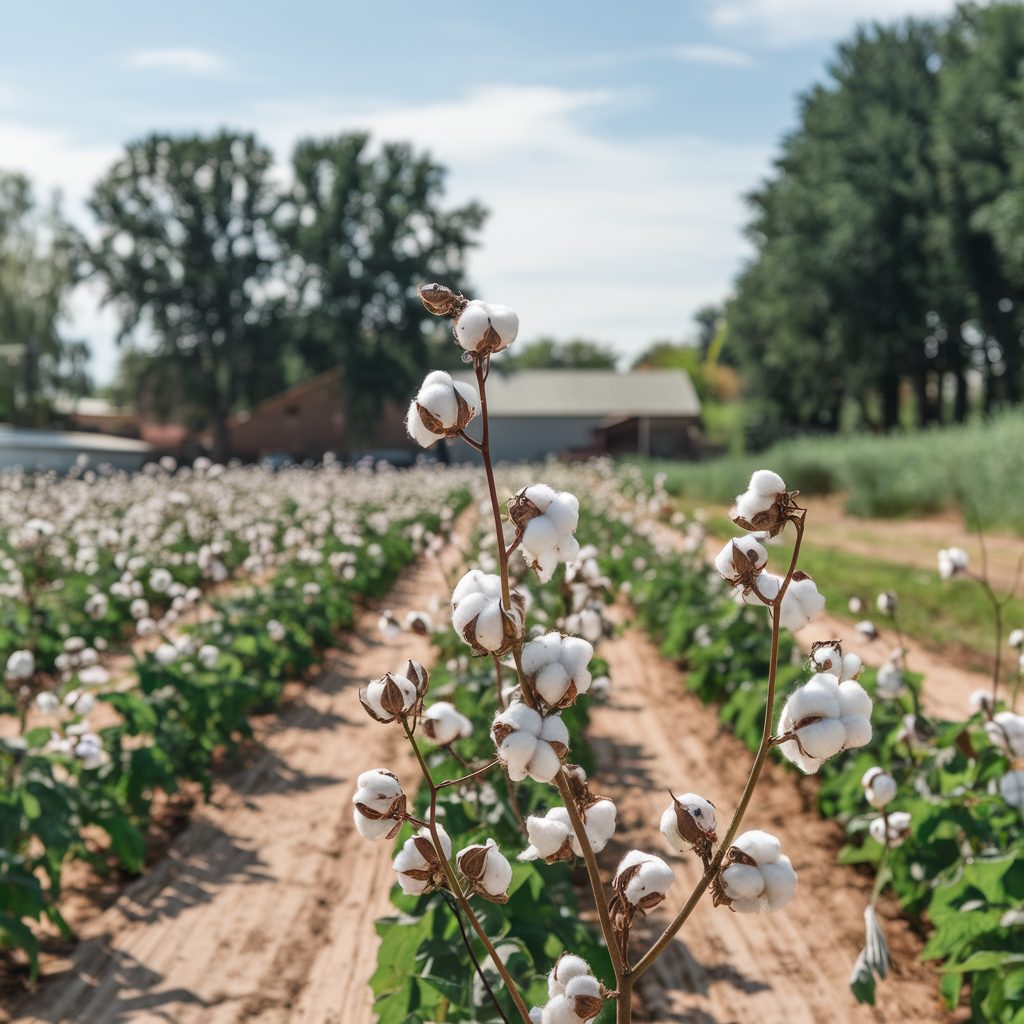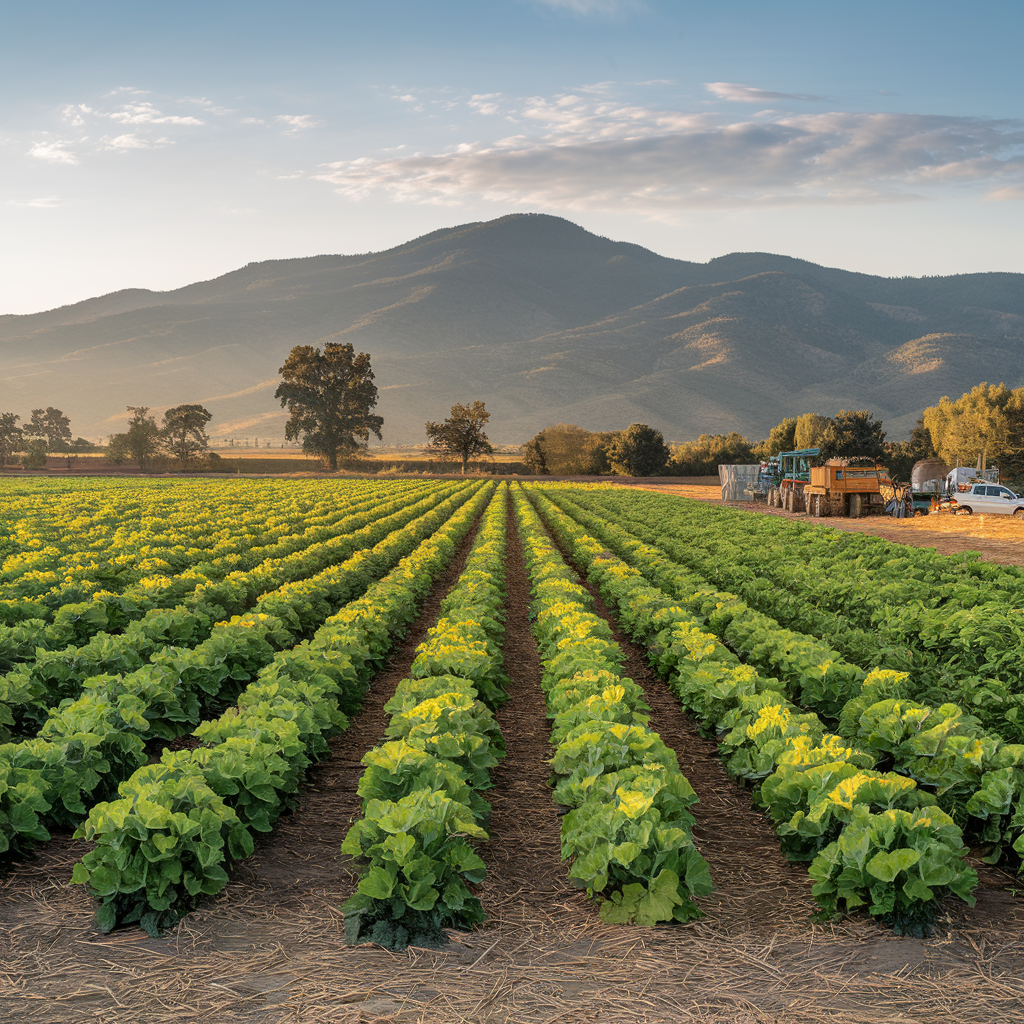The global cotton industry is a significant player in the textile market, but it has long been criticized for its environmental impact. Traditional cotton farming practices, which rely heavily on chemical inputs like pesticides and fertilizers, contribute to soil degradation, water pollution, and loss of biodiversity. However, a growing movement towards organic cotton farming offers a sustainable alternative that promises to mitigate these issues. This shift not only benefits the environment but also presents economic advantages for farmers and the broader textile industry.
Environmental Impact of Conventional Cotton Farming
Conventional cotton farming is notorious for its intensive use of synthetic chemicals. Pesticides, herbicides, and fertilizers are used in large quantities to maximize yield, but these practices come at a cost. The chemicals used can contaminate water sources, harm wildlife, and degrade soil quality. Additionally, conventional cotton farming is water-intensive, often leading to over-extraction from rivers and groundwater, exacerbating water scarcity in many regions. The environmental footprint of conventional cotton is further magnified by its contribution to greenhouse gas emissions due to the production and use of synthetic inputs.
The Rise of Organic Cotton Farming
In response to the environmental concerns associated with conventional cotton, organic cotton farming has emerged as a viable and sustainable alternative. Organic cotton is grown without the use of synthetic pesticides or fertilizers. Instead, it relies on natural processes and inputs, such as compost, crop rotation, and biological pest control, to maintain soil fertility and control pests. These practices promote biodiversity, improve soil health, and reduce water usage, making organic cotton farming much more sustainable in the long run.
Water Conservation in Organic Cotton Farming
One of the key environmental benefits of organic cotton farming is its reduced water footprint. Organic farming practices enhance the soil’s ability to retain moisture, which means that organic cotton requires less irrigation than conventional cotton. This is particularly important in regions where water is a scarce resource. By conserving water, organic cotton farming helps to protect local ecosystems and supports the long-term sustainability of agricultural communities.

Soil Health and Biodiversity
Healthy soil is the foundation of sustainable agriculture, and organic cotton farming excels in this area. By avoiding synthetic chemicals, organic cotton farmers preserve the natural balance of soil organisms, which are essential for nutrient cycling and plant health. Additionally, the use of crop rotation and cover crops in organic farming helps to prevent soil erosion and maintain soil structure. This not only improves the resilience of cotton crops but also supports a wider range of plant and animal species, enhancing biodiversity on farms.
Economic Benefits for Farmers
While organic cotton farming requires more labor-intensive practices, it can offer significant economic benefits to farmers. Organic cotton often commands higher prices in the market due to its perceived quality and sustainability credentials. This premium can help farmers achieve better financial stability and reduce their reliance on costly synthetic inputs. Moreover, by improving soil health and water management, organic farming practices can enhance crop resilience and reduce the risk of crop failure, providing farmers with a more secure income.
Consumer Demand and Market Growth
The demand for organic cotton products has been steadily increasing as consumers become more aware of the environmental and social impacts of their purchasing decisions. Brands and retailers are responding to this demand by incorporating organic cotton into their product lines, from clothing to home textiles. This growing market for organic cotton not only provides economic opportunities for farmers but also encourages more conventional cotton growers to transition to organic practices, further amplifying the environmental benefits.
Challenges and Opportunities in Organic Cotton Farming
Despite its many benefits, organic cotton farming faces several challenges. The transition from conventional to organic farming can be difficult, requiring significant changes in farming practices and a period of reduced yields. Additionally, organic certification can be costly and time-consuming, creating barriers for small-scale farmers. However, these challenges also present opportunities for innovation and collaboration. By investing in research, education, and support for organic farmers, stakeholders in the cotton industry can help overcome these obstacles and drive the growth of organic cotton farming.
The Role of Policy and Advocacy
Government policies and industry standards play a crucial role in promoting sustainable cotton farming. By providing incentives for organic farming, supporting research into sustainable practices, and enforcing regulations on pesticide use, policymakers can encourage the adoption of organic cotton farming. Additionally, advocacy efforts by non-governmental organizations and consumer groups can raise awareness about the benefits of organic cotton and pressure brands to adopt more sustainable practices.
The Future of Cotton: A Sustainable Path Forward
As the textile industry continues to evolve, the importance of sustainable practices in cotton farming will only grow. Organic cotton represents a key component of this shift towards sustainability. By reducing environmental impact and offering economic benefits to farmers, organic cotton farming provides a model for the future of agriculture. As consumer demand for sustainable products increases, the adoption of organic cotton is likely to accelerate, driving positive change across the industry.
Conclusion: A Win-Win for People and the Planet
The comparison between organic cotton and conventional cotton highlights the profound impact that farming practices can have on both the environment and the economy. Organic cotton farming offers a sustainable alternative that addresses many of the environmental challenges associated with conventional cotton while providing economic benefits to farmers. As the world moves towards more sustainable and ethical production methods, organic cotton is poised to play a leading role in the future of the textile industry, offering a win-win solution for people and the planet.






